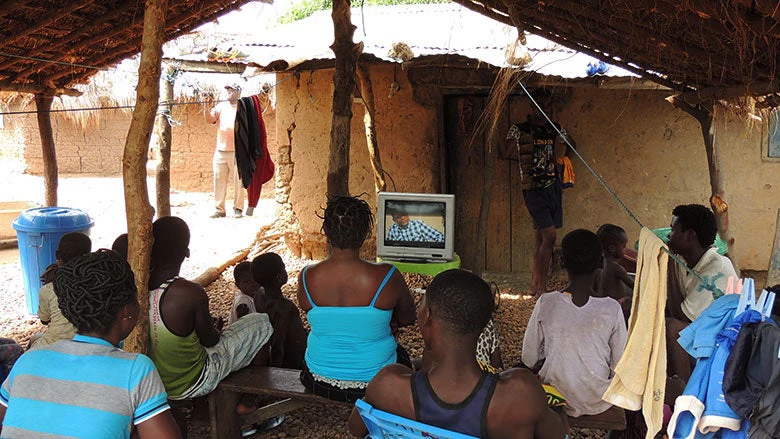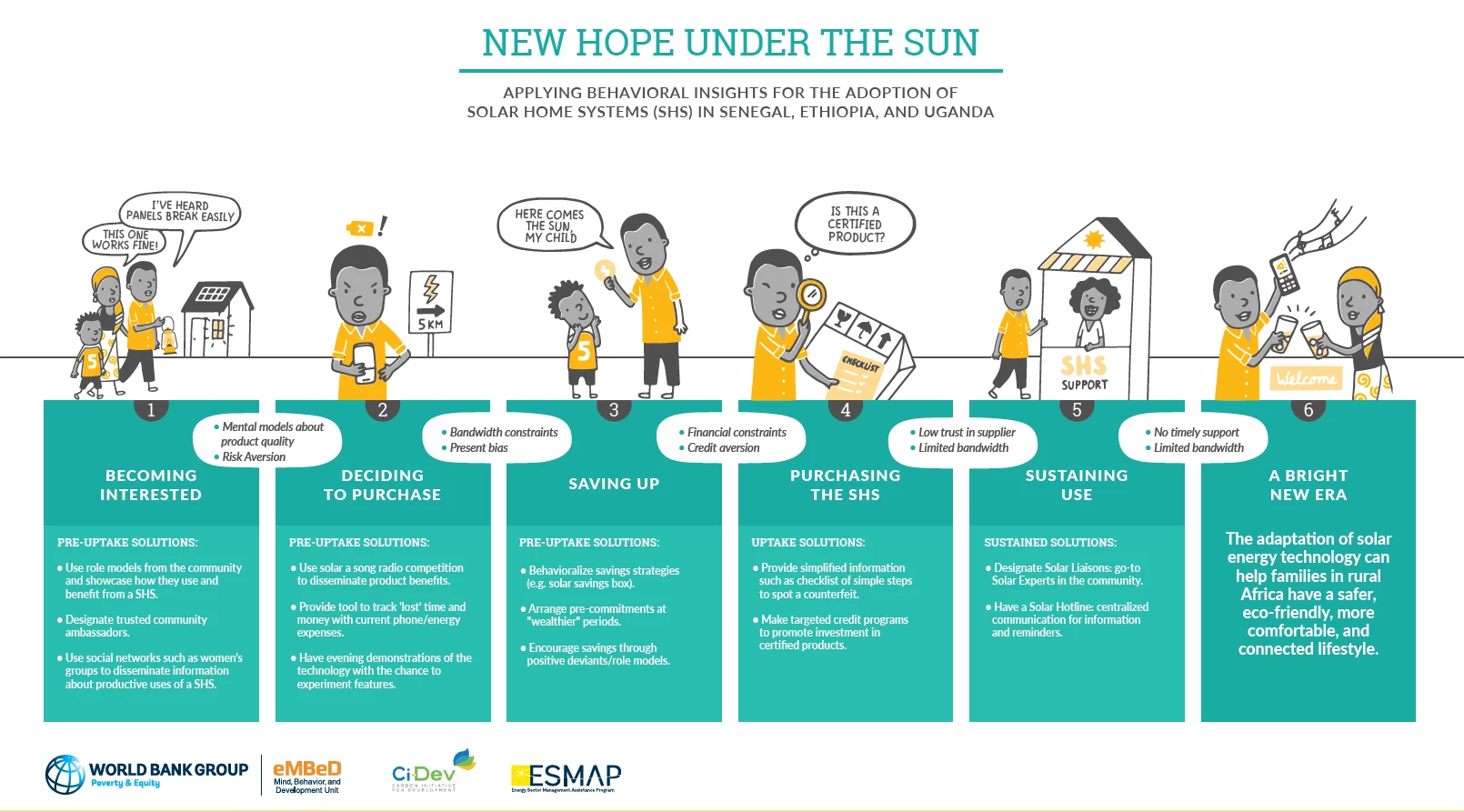 People watching a television powered by solar
People watching a television powered by solar
Solar home systems are brightening homes and futures in many remote locations across Sub-Saharan Africa beyond the reach of the electrical grid. In Ethiopia, where more than 60 million people live without access to electricity, the National Electrification Program aims to scale up energy access by 35% through off-grid solutions such as solar home systems. Since many rural households are far from the grid and use electricity primarily for lighting, phone charging, and powering radios, off-grid options offer a viable solution to meet their electricity needs.
But many low-income households across Sub-Saharan Africa are still hesitant to adopt solar power despite technology and cost improvements. To understand why, the World Bank’s Carbon Initiative for Development (Ci-Dev) and its Mind, Behavior, and Development Unit (eMBeD) teamed up to explore how societal factors, individual biases, and mindsets influence adoption of solar home systems.
We conducted behavioral diagnostics in Ethiopia, Senegal, and Uganda to better understand how people perceive solar power. We identified the roadblocks and developed ways to overcome them, as illustrated in the infographic below. Extensive interviews revealed that many barriers center around perceptions of the utility of solar home systems, including their financial value. Some important insights and potential solutions include the following.

- Cost savings are not always obvious. The message that solar power can save time and money does not always resonate with low-income households dealing with scarcity and managing competing priorities. It is difficult to see how solar power can save money when current energy expenses cannot be easily tracked in a household with many people and varied spending on phone charging, batteries, candles, and other utilities. Simple tracking tools can help households understand their current phone and energy expenses and compare potential cost savings with a solar home system. Messages around the benefits of solar energy can also be better disseminated through social interventions, like enlisting the support of a trusted community ambassador or launching a pro-solar song contest on the radio.
- Microfinance is not the solution for all. In some areas, microfinance institutions offer loans for solar home systems, but interest rates tend to be high (15–23% on average) with short repayment terms. For a household with fluctuating and low amounts of disposable income, these terms can be deemed too risky, especially for what is still considered a non-productive asset. This risk aversion is further reinforced by negative perceptions of product quality, often diffused through peers. As an alternative to risky, high-interest loans, behavioral savings strategies can be used to promote long-term savings for goals like buying a solar home system. Goal setting and planning can foster self-efficacy; and simple tools to accompany the strategies, such as lockboxes and reminders, can encourage soft commitments and accountability. Not only can these strategies increase opportunities to purchase a clean energy product, they can also boost individual and community aspirations.
- There is untapped potential for social learning among peers. Informal savings groups, such as village savings and loans associations in refugee settlements in Uganda (VSLAs, also known as SACCOs elsewhere) offer an alternative to microfinance loans. These community-based groups help members organize savings and group loans for productive uses at low interest rates (around 5%). Unfortunately, many do not yet recognize the productive use of solar home systems and so do not provide loans for them yet. To shift this perception, it is important to raise awareness of the value of solar power and showcase community members who have put it to good use. For example, we interviewed a bar owner who saw her customers greatly increase after she purchased a solar home system and started selling cold drinks and playing music powered by electricity. Her mindset shifted during the conversation once she was able to attribute the solar panels to her increased business.
In the next phase of our work, we will pilot selected behavior change interventions in refugee settlements in Uganda. This includes demonstrating ways solar home systems can help families engage in income-generating activities, such as using the light at night to cook more for the marketplace or charging cell phones for a fee. Women-run households, in particular, stand to benefit from increased economic activity, comfort, and security provided by solar energy. We look forward to seeing how behavioral science can increase uptake of solar home systems for sustained scalable use.




Join the Conversation